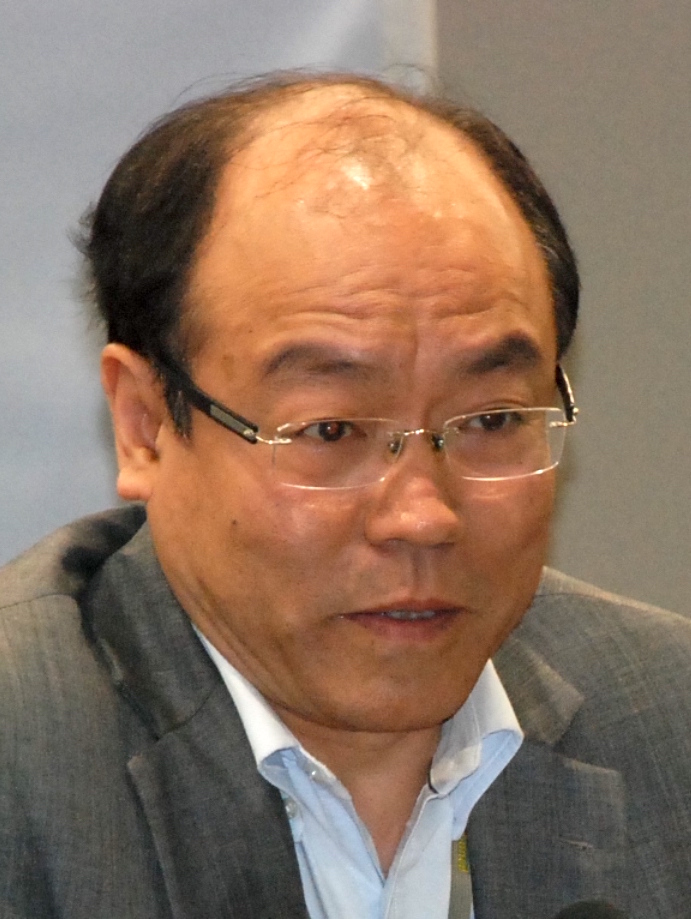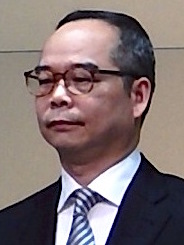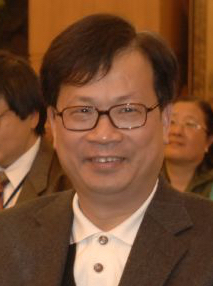|
Ma Tau Wai (constituency)
Ma Tau Wai () is one of the 25 constituencies in the Kowloon City District of Hong Kong which was created in 1991. The constituency loosely covers Ma Tau Wai with the estimated population of 20,629. Councillors represented Election results 2010s 2000s 1990s Notes References {{coord missing, Hong Kong Constituencies of Hong Kong Constituencies of Kowloon City District Council 1991 establishments in Hong Kong Constituencies established in 1991 Ma Tau Wai ... [...More Info...] [...Related Items...] OR: [Wikipedia] [Google] [Baidu] |
1991 Hong Kong Local Elections
The 1991 Hong Kong District Board elections were held on 3 March 1991. Elections were held in all 19 District Councils of Hong Kong, districts of Hong Kong for 274 members from directly elected constituencies, which counted for about two-thirds of the seats in the District Boards. It was the first of the three-tier elections in 1991, followed by the 1991 Hong Kong municipal elections, May Urban and Regional Council elections and the 1991 Hong Kong legislative election, September Legislative Council election in which direct elections would be introduced for the first time. In preparation for these elections, both the liberal pro-democracy and conservative pro-business forces formed political parties to the contest in the coming elections. The pro-democracy party United Democrats of Hong Kong (UDHK) formed as a grand alliance for the pro-democrats in April 1990, the more middle-class oriented Hong Kong Democratic Foundation (HKDF) formed in October 1989 and the pro-business conser ... [...More Info...] [...Related Items...] OR: [Wikipedia] [Google] [Baidu] |
2019 Hong Kong Local Elections
The 2019 Hong Kong District Council elections were held on 24 November 2019 for all 18 District Councils of Hong Kong. 452 seats from all directly elected constituencies, out of the 479 seats in total, were contested. Nearly three million people voted, equivalent to 71 per cent of registered voters, an unprecedented turnout in the electoral history of Hong Kong. The election was widely viewed as a ''de facto'' referendum on the 2019–2020 Hong Kong protests, concurrent anti-extradition protests. All pro-Beijing parties suffered major setbacks and losses, including the flagship pro-Beijing party Democratic Alliance for the Betterment and Progress of Hong Kong (DAB), which received its largest defeat in history, losing 96 seats. Executive Council of Hong Kong, Executive Councillor Regina Ip's New People's Party (Hong Kong), New People's Party failed to obtain a single seat, and was ousted from all District Councils as a result. Dozens of prominent pro-Beijing heavyweights lost the ... [...More Info...] [...Related Items...] OR: [Wikipedia] [Google] [Baidu] |
1991 Establishments In Hong Kong
It was the final year of the Cold War, which had begun in 1947. During the year, the Soviet Union collapsed, leaving fifteen sovereign republics and the CIS in its place. In July 1991, India abandoned its policies of dirigism, license raj and autarky and began extensive liberalisation to its economy. This increased GDP but also increased income inequality over the next two decades. A UN-authorized coalition force from 34 nations fought against Iraq, which had invaded and annexed Kuwait in the previous year, 1990. The conflict would be called the Gulf War and would mark the beginning of a since-constant American military presence in the Middle East. The clash between Serbia and the other Yugoslav republics would lead into the beginning of the Yugoslav Wars, which ran through the rest of the decade. In the context of the apartheid, the year after the liberation of political prisoner Nelson Mandela, the Parliament of South Africa repeals the Population Registratio ... [...More Info...] [...Related Items...] OR: [Wikipedia] [Google] [Baidu] |
Constituencies Of Kowloon City District Council
An electoral (congressional, legislative, etc.) district, sometimes called a constituency, riding, or ward, is a geographical portion of a political unit, such as a country, state or province, city, or administrative region, created to provide the voters therein with representation in a legislature or other polity. That legislative body, the state's constitution, or a body established for that purpose determines each district's boundaries and whether each will be represented by a single member or multiple members. Generally, only voters (''constituents'') who reside within the district are permitted to vote in an election held there. The district representative or representatives may be elected by single-winner first-past-the-post system, a multi-winner proportional representative system, or another voting method. The district members may be selected by a direct election under wide adult enfranchisement, an indirect election, or direct election using another form o ... [...More Info...] [...Related Items...] OR: [Wikipedia] [Google] [Baidu] |
1994 Hong Kong Local Elections
The 1994 Hong Kong District Board elections were held on 18 September 1994 for all 18 District Councils of Hong Kong, districts of Hong Kong and 346 members from directly elected constituencies. It was the last district-level elections in the colonial period before the handover of Hong Kong in 1997. It was the first elections to be held after the abolition of the appointed seats as proposed by the 1994 Hong Kong electoral reform, new electoral arrangements, as the last step of the democratisation by the then Governor Chris Patten before the handover. Despite set against the British-Chinese dispute over Hong Kong's political reform, the election was influenced by local issues such as bus fares and garbage collection. The turnout of 33.1 per cent, slightly higher than the 32.5 per cent turnout for the 1991 Hong Kong local elections, 1991 District Board elections. Almost 700,000 votes cast were 60 per cent more than in the previous election and reflect the broader franchise stemming ... [...More Info...] [...Related Items...] OR: [Wikipedia] [Google] [Baidu] |
2003 Hong Kong Local Elections
The 2003 Hong Kong District Council elections were held on 23 November 2003 for all 18 District Councils of Hong Kong, districts of Hong Kong, 400 members from directly elected constituencies out of total 529 council members. It was the second District Council election after the handover of Hong Kong in 1997. The election was historically significant as it was the first election came after the controversies over the legislation of the Hong Kong Basic Law Article 23 and the July 1 protests#2003 protest, large-scale July 1 protests in mid-2003 against the unpopular Tung Chee-hwa administration. The election saw the devastating defeat of the pro-government pro-Beijing camp. The pro-Beijing flagship party Democratic Alliance for the Betterment of Hong Kong (DAB) received the largest defeat in the elections, only 62 of the 206 of its candidates were elected. The party's heavyweights, Yeung Yiu-chung, Lau Kong-wah and Ip Kwok-him all lost their seats to the pro-democracy challengers, ... [...More Info...] [...Related Items...] OR: [Wikipedia] [Google] [Baidu] |
2007 Hong Kong Local Elections
The 2007 Hong Kong District Council elections were held on 18 November 2007. Elections were held to all 18 districts of Hong Kong, returned 405 members from directly elected constituencies out of total 534 councils member. A total number of 886 candidates contesting in 364 seats, while 41 seats were uncontested. A total number of 1.4 million voters cast their ballots, consisting 38% of the electorate, significantly lower than the 2003 Hong Kong local elections, last elections in 2003. The pro-Beijing camp, pro-Beijing flagship party Democratic Alliance for the Betterment and Progress of Hong Kong (DAB) received the largest victory in its history, rebounding their loss from the 2003 with extra gain, taking total number of 115 seats, compared to 62 seats in the 2003 elections. The Pro-democracy camp in Hong Kong, pan-democrats suffered a devastating loss, with its Democratic Coalition for DC Election, electoral coalition winning only about a hundred seats out of almost 300 candid ... [...More Info...] [...Related Items...] OR: [Wikipedia] [Google] [Baidu] |
2011 Hong Kong Local Elections
The 2011 Hong Kong District Council elections were held on 6 November 2011. Elections were held to all 18 District Councils of Hong Kong, returning 412 members from directly elected constituencies, each selecting a council member. After the government's constitutional reform package was passed in 2010, five new seats in the Legislative Council would be created in which the candidates would be nominated by all District Councillors. The pro-Beijing camp continued its success in this election and controlled all 18 District Councils. The pro-Beijing flagship party Democratic Alliance for the Betterment and Progress of Hong Kong (DAB) remained the biggest winner by taking 136 seats, far ahead of the pan-democracy flagship party Democratic Party's 47 seats. The Democratic Party faced challenges from radical democratic party People Power which campaigned against the Democratic Party and Association for Democracy and People's Livelihood (ADPL) which supported the government's cons ... [...More Info...] [...Related Items...] OR: [Wikipedia] [Google] [Baidu] |
Rosanda Mok Ka-han
Rosanda Mok Ka-han ( zh, 莫嘉嫻; born 23 May 1972) is a Democratic Party politician in Hong Kong and a member of Wong Tai Sin District. She is the former chairman of the pro-democracy pro-grassroots Hong Kong Association for Democracy and People's Livelihood (ADPL) and former member of the Kowloon City District Council for Ma Tau Wai. Biography Rosanda Mok was born in 1972 and graduated from the Chinese University of Hong Kong with a master's degree in Sociology. She joined the Hong Kong Association for Democracy and People's Livelihood (ADPL), a local-based pro-grassroots pro-democratic party and was first elected to the Kowloon City District Council through Ma Tau Wai in the 1999 District Council election and re-elected for three times until she was unseated by the pro-Beijing Democratic Alliance for the Betterment and Progress of Hong Kong (DAB) newcomer Terence Siu Tin-hung in the 2015 election with a narrow margin of 45 votes. She has also hold public positions in ... [...More Info...] [...Related Items...] OR: [Wikipedia] [Google] [Baidu] |
Independent Politician
An independent politician or non-affiliated politician is a politician not affiliated with any political party or Bureaucracy, bureaucratic association. There are numerous reasons why someone may stand for office as an independent. Some politicians have political views that do not align with the platforms of any political party and therefore they choose not to affiliate with them. Some independent politicians may be associated with a party, perhaps as former members of it or else have views that align with it, but choose not to stand in its name, or are unable to do so because the party in question has selected another candidate. Others may belong to or support a political party at the national level but believe they should not formally represent it (and thus be subject to its policies) at another level. In some cases, a politician may be a member of an unregistered party and therefore officially recognised as an independent. Officeholders may become independents after losing or r ... [...More Info...] [...Related Items...] OR: [Wikipedia] [Google] [Baidu] |
Ken Tsang
Ken Tsang Kin-chiu ( zh, link=no, t=曾健超; born 12 July 1975) is a Hong Kong activist and social worker. He is most known for his beating incident during the 2014 Hong Kong protests. Background Tsang studied Journalism at the Shue Yan College before he studied Social Work at the Hong Kong Polytechnic University. He was a member of the standing committee of the Hong Kong Federation of Students in 1997. He worked as a flight attendant and social work after graduation. He represented the Civic Party to run in the 2007 and 2011 District Council elections but was both defeated. In the 2008 Legislative Council election, he ran as a third candidate on Civic Party's Ronny Tong ticket in New Territories East. Tong was re-elected with almost 40,000 votes. Ken Tsang contested 2019 District Council Election and was elected to represent Ma Tau Wai Constituency of Kowloon City District on 24 November 2019. He obtained 4,264 votes, 52% of total valid votes. In the 2011 Election Commit ... [...More Info...] [...Related Items...] OR: [Wikipedia] [Google] [Baidu] |








